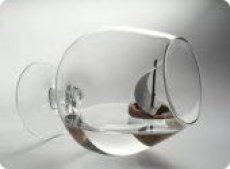New publications
Success on the personal front makes you forget about alcohol
Last reviewed: 01.07.2025

All iLive content is medically reviewed or fact checked to ensure as much factual accuracy as possible.
We have strict sourcing guidelines and only link to reputable media sites, academic research institutions and, whenever possible, medically peer reviewed studies. Note that the numbers in parentheses ([1], [2], etc.) are clickable links to these studies.
If you feel that any of our content is inaccurate, out-of-date, or otherwise questionable, please select it and press Ctrl + Enter.

Success or failure in love life determines the behavior of a wide variety of animals: if a male fruit fly is rejected by a female, the reward system in his brain will force the male to find solace in a shot of alcohol - and there is no need to point out the obvious similarities with human behavior.
Lack of sex pushes male fruit flies to drink. This conclusion was made by researchers from the University of California in San Francisco (USA), after studying the behavior of males who were lucky and unlucky in love. The scientists published the results of their experiments in the journal Science. The goal of the work was to find out whether social interaction can influence the subsequent behavior of an individual. As for humans, the answer is obvious, but, apparently, the influence of social contact on behavior is carried out through fairly ancient molecular mechanisms that even insects have.
There is a so-called reinforcement system in the brain: it is to it that we owe the feeling of pleasure as a result of winning, reward, etc. It is known that alcohol activates this system, causing a feeling of satisfaction. On the other hand, successful social contact, when we enjoy communication, activates the same system. This mechanism is quite universal; it is present in humans and flies. Scientists decided to find out whether different stimuli can overlap in this system, whether failure in one can be compensated for by a win in another. The experiment is, in fact, quite simple. Male fruit flies were divided into two groups. One was placed with females ready to mate; there were several times fewer males than females, so none of the suitors was left deprived. The other group was placed one-on-one with females that had recently mated; such flies rejected all advances from males eager for intimacy.
After four days of intersexual intercourse, the males were transferred to a chamber where they had two capillaries with nutrient fluid, but in one of them ethanol was mixed with this fluid. It turned out that sexually satisfied males experience a certain aversion to ethanol - in contrast to rejected lovers, who "hit the bottle" four times more often than their more personally happy comrades.
However, the researchers did not limit themselves to simply stating this fact and tried to determine the molecular mechanism behind this behavior. It turned out that it was all about neuropeptide F (NPF), which was already known to mediate alcohol addiction in flies. The rejected males had a lower level of this neuropeptide in the brain. If the level of NPF receptors was artificially lowered in mated males, they sought alcohol despite their success in their personal lives. On the other hand, an increased level of NPF receptors relieved the unsuccessful males of their craving for alcohol.
Neuropeptide F is clearly a key player in the brain's reward system, linking together different impulses and influencing the individual's subsequent behavior. Of course, this is just the beginning of the work, and scientists have yet to figure out exactly how NPF regulates alcohol cravings and how sexual satisfaction affects its levels in the brain.
The human brain has a similar neuropeptide Y that has properties similar to NPF. NPY levels drop under stress, low levels stimulate alcohol addiction in rats, and some mutations in the NPY gene are thought to be linked to alcoholism in humans. Who knows, perhaps further research in this area will free men from the need to numb the pain of a broken heart with hard liquor.
 [ 1 ]
[ 1 ]
